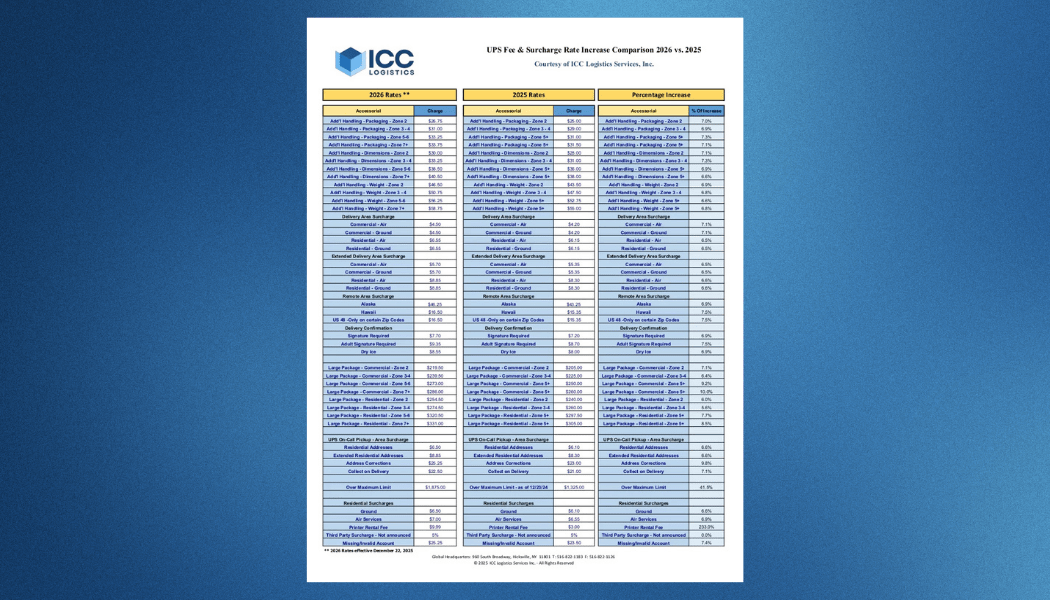Some line items are scarier than they look. On the surface, freight invoices appear routine; rows of numbers, surcharges, and totals. But hidden beneath those quiet line items lurk charges that quietly devour profits. Without strong oversight, these costs slip through finance departments, inflating transportation spend and cutting directly into margins.
A freight bill audit provides exactly the kind of safeguard businesses need: a systematic review of what carriers are billing compared to what was contractually agreed. For shippers, manufacturers, retailers, and logistics teams, it’s often the difference between paying what you owe and unknowingly losing thousands to hidden charges.
Why Hidden Freight Charges Are So Dangerous
The danger of hidden fees lies in their invisibility. They don’t arrive with warnings or flashing red markers; instead, they creep in quietly under vague descriptors such as manual handling fee, non-stackable pallet surcharge, or liftgate service. When buried among dozens of line items, they often pass through unnoticed.
Industry studies reveal just how significant this problem is. Research indicates that 20–30% of freight invoices contain discrepancies. These range from fluctuating fuel surcharges and incorrectly recorded shipment weights to duplicate charges and misapplied rates. For companies managing hundreds or thousands of invoices, the result can be staggering: millions in lost profit annually, simply from unmonitored billing errors.
Common Culprits in Freight Invoices
Certain line items consistently create headaches for shippers. The most frequent offenders include:
- Fuel surcharge fluctuations: Carriers often adjust these with little visibility, leading to discrepancies that are rarely challenged.
- Accessorial fees: Detention, reconsignment, inside delivery, and after-hours delivery charges frequently slip through with little oversight.
- Dimensional weight errors: Misclassifications or incorrect dimensional calculations can inflate shipping costs significantly.
- Duplicate charges and misapplied rates: Particularly problematic for companies with complex supply chains and high shipment volumes.
Individually, these charges might seem minor. Together and unchecked, however, they erode profitability like termites silently weakening a foundation.
How a Freight Bill Audit Protects Margins
A professional freight bill audit does far more than flag mistakes. When performed consistently, it becomes a cycle of quality control, helping create accountability while generating strategic intelligence. Specifically, freight audits:
- Confirm contracted vs. billed rates: Ensures every invoice reflects the pricing terms actually agreed upon with carriers.
- Pinpoint repetitive accessorials: Surfaces recurring fees that can be investigated, reduced, or eliminated through improved processes or contract negotiations.
- Recover erroneous charges: Delivers immediate cost recovery while preventing the same errors from leaking into future invoices.
- Strengthen negotiation leverage: Reliable audit data exposes billing trends, giving shippers factual backing in contract discussions.
In short, freight auditing is both a defensive tool and a strategic advantage, protecting today’s bottom line while building smarter operations for tomorrow.
Why Accessorial Fees Are Often Overlooked
Accessorials may appear insignificant — an extra charge here for inside delivery, a small adjustment there for a pallet—but they collectively wreak havoc on budgets. Three factors explain why they fly under the radar:
- Granularity: Small charges rarely raise alarms for Accounts Payable teams focused on processing invoices at scale.
- Contextual obscurity: Without detailed shipment data, many teams lack the context needed to contest these charges.
- Repeat frequency: What appears to be a one-off fee can occur hundreds of times throughout the year.
A freight audit brings clarity, revealing these recurring accessorial charges so businesses can address them proactively rather than reactively.
The Cost of Not Reviewing Your Invoices
Skipping a freight audit may feel like a time-saving measure, but the price is steep. For mid-sized shippers, undetected billing errors and recurring accessorials often total hundreds of thousands of dollars annually. Beyond the money, the hidden costs of neglecting invoice reviews include:
- Strained carrier relationships: Unresolved overbilling erodes trust between shippers and carriers over time.
- Reduced bargaining power: Without hard data, companies lose critical leverage in rate and contract negotiations.
- Lost opportunities: Dollars wasted on errors represent growth capital that could have been reinvested more productively.
Case in Point: Peak Season Vulnerability
During high-demand shipping periods, billing risks multiply. Carriers may apply seasonal fuel surcharge increases, impose detention fees, or incorrectly reclassify shipments simply due to operational pressures. Without careful auditing, invoices reflecting these surges are approved without question.
For businesses committed to regular auditing, however, those discrepancies are caught and disputed, leading to more accurate billing and improved negotiations for future shipments. In practice, companies often recover tens of thousands of dollars each year when auditing processes are implemented during seasonal peaks.
FAQs
What hidden charges often appear in shipping invoices?
Some of the most common include manual handling fees, liftgate service, non-stackable pallet surcharges, detention charges, and variable fuel surcharges.
How can a freight bill audit protect your margins?
It validates rate accuracy, uncovers hidden or repetitive expenses, and equips companies with valuable insights for negotiating fairer agreements with carriers.
Why are accessorial fees often overlooked?
Because they’re small, lack proper context, and are buried within long invoices, they slip past Accounts Payable even though their cumulative cost is significant.
What’s the true cost of not reviewing your invoices?
Unmonitored invoices lead to overspending, reduced transparency, weaker negotiation positions, and long-term erosion of financial performance.
Why ICC Logistics Is the Partner Shippers Trust
With over 50 years of expertise, ICC Logistics helps businesses untangle the complexity of freight spend. Our freight bill audit services cover LTL, FTL, and ocean freight invoices, examining every line item for accuracy, recovering overpayments, and preventing repeat errors from draining profits.
But ICC goes beyond simple recovery. We deliver insights that empower executives, CFOs, and supply chain leaders to renegotiate contracts, streamline operations, and ensure every transportation dollar is being utilized efficiently. That’s why industry leaders across multiple sectors rely on ICC for visibility, accuracy, and control.
Take the Fear Out of Freight Invoices
Those small, overlooked line items pack an outsized punch against profitability. A freight bill audit serves as your flashlight in the darkness, illuminating hidden costs, protecting your margins, and turning uncertainty into strategic control.
Ready to uncover what’s really hiding in your invoices? Contact ICC Logistics today for a risk-free freight bill analysis and take control of your shipping spend.
Additional Resources:
- Why a Freight Audit Should Be Your First Cost-Saving Move
- Download your FREE Freight Audit Checklist
- What’s The Process For Negotiating Better Freight Terms?
- The Invoice Trap: Why Freight Invoice Errors Happen
- Understanding Surcharge Recovery and Hidden Fees in Shipping



 to receive our FREE white papers:
to receive our FREE white papers: